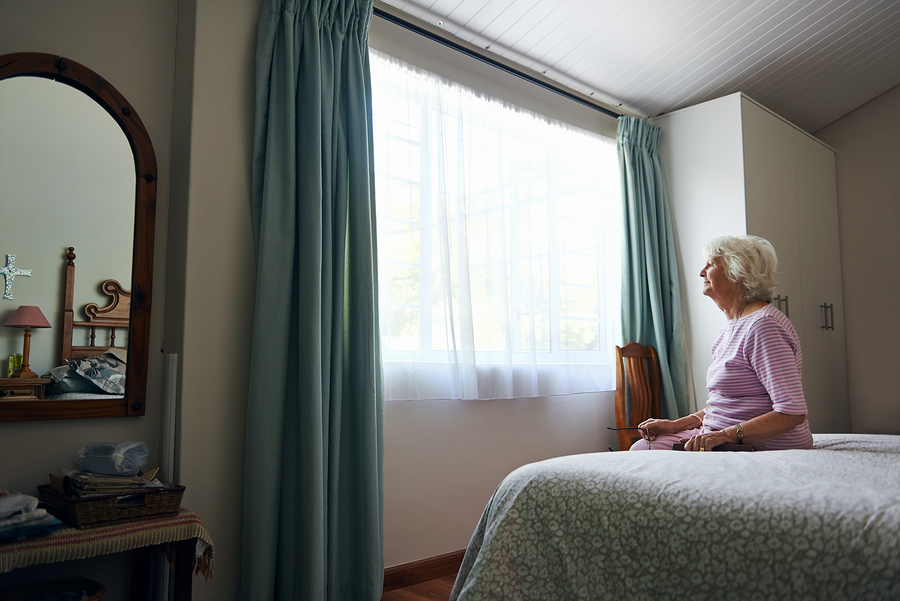When a loved one is diagnosed with dementia, ensuring their safety becomes one of the most important priorities for any family. Many older adults wish to remain in their own homes, surrounded by familiar sights, cherished possessions, and comforting memories. However, living at home with dementia requires thoughtful planning, attention to detail, and dependable dementia care to help maintain both safety and independence.
Dementia can cause changes in memory, reasoning, and perception, making everyday activities more challenging. A senior might leave the stove on, forget to lock the door, or become confused about how to use common household items. They may mix up hot and cold water, eat spoiled food, or wander away from home without realizing it. These risks make consistent, attentive care essential for their well-being.
With reliable dementia care in place, families can ensure that their loved one remains safe and comfortable while continuing to enjoy the familiarity of home.
The Value of Dedicated Dementia Care
Dementia care providers understand how memory loss, confusion, and cognitive changes affect daily living. Their focus is on helping each person feel secure, respected, and supported, while encouraging as much independence as possible.
A caregiver experienced in dementia care learns to recognize small signs of distress or disorientation. They know how to respond with calm reassurance, helping to redirect attention and reduce anxiety. Whether it’s guiding a senior through a morning routine or ensuring their environment is free from hazards, these caregivers provide steady, compassionate support.
Families gain peace of mind knowing that someone is watching over their loved one—someone who understands their unique needs and can respond thoughtfully when challenges arise.
Making the Home Safer for Seniors with Dementia
Along with dependable caregiving, simple home safety adjustments can make a major difference in protecting your loved one. By creating a supportive environment, you can prevent accidents and confusion while promoting confidence and independence.
1. Secure Dangerous Items
People living with dementia may lose awareness of what is safe to touch or use. To prevent accidents, keep hazardous items like knives, scissors, cleaning products, matches, and medications locked away or stored in hard-to-reach cabinets.
Childproof locks work well for drawers and cupboards. Keeping these items secured helps your loved one move freely throughout their home without encountering unnecessary risks.
2. Make the Kitchen Safer
The kitchen can be one of the most dangerous areas for someone with memory loss. Forgetting to turn off a burner or oven can quickly lead to accidents. Dementia care providers often make small but effective changes such as:
- Using appliances with automatic shut-off features
- Removing stove knobs when not in use
- Turning off gas valves when cooking is finished
- Labeling drawers and cupboards for easier navigation
These adjustments reduce hazards while allowing your loved one to continue participating in simple kitchen activities that bring them comfort.
3. Create a Safe Bathroom Environment
Bathrooms can present serious safety concerns due to slippery floors and confusing layouts. Installing grab bars near the toilet and shower, using non-slip mats, and providing a shower chair or raised toilet seat can make daily routines safer.
Label faucets clearly with “hot” and “cold” to prevent burns, and keep towels, soap, and toiletries within easy reach to avoid bending or reaching. Dementia care providers often assist with bathing or grooming to ensure comfort and safety without taking away independence.
4. Prevent Wandering and Getting Lost
Wandering is a common and potentially dangerous behavior associated with dementia. A person may leave home unexpectedly and become lost, even in familiar surroundings. To reduce this risk, consider:
- Installing locks that are higher or lower than eye level
- Adding door alarms or motion sensors that alert caregivers when a door opens
- Using ID bracelets or wearable GPS devices with name and contact information
- Placing recognizable photos or signs near exits to encourage orientation
Caregivers who provide dementia care are alert to the early signs of restlessness that often lead to wandering and can help redirect attention before a situation becomes unsafe.
5. Simplify and Organize the Home
A cluttered or confusing environment can make dementia symptoms worse. Simplifying each room creates a calmer, safer atmosphere. Keep pathways clear, remove unnecessary furniture, and eliminate loose rugs or cords that may cause tripping.
Use clear labels or large-print signs on doors, such as “Bathroom” or “Kitchen,” to guide your loved one. Distinct colors on walls or doors can also help with orientation. Adequate lighting is key—install nightlights and motion-sensor lights to reduce dark spots and shadows that may cause fear or confusion.
Additional Home Safety Tips
Small steps can go a long way toward creating a dementia-friendly home environment. In addition to the major adjustments above, consider these helpful tips:
- Keep emergency phone numbers visible near the phone or on the refrigerator.
- Use automatic nightlights in bedrooms, hallways, and bathrooms.
- Avoid interior door locks that could trap your loved one inside a room.
- Store car keys out of sight if driving is no longer safe.
- Maintain consistent lighting to minimize shadows that can cause distress.
- Use contrasting colors for walls, floors, and furniture to help with depth perception.
- Maintain a predictable routine—regular schedules can reduce confusion and anxiety.
Supporting Safety and Comfort with Dementia Care
The goal of dementia care is not just to prevent accidents—it’s to create a sense of stability, security, and reassurance for the person living with dementia. Being surrounded by familiar things and routines helps them feel calm and connected, while compassionate caregivers provide the assistance they need to remain safe.
Dementia care providers offer more than just daily support. They build trust, foster comfort, and bring understanding to each interaction. Their presence allows seniors to live with dignity while offering families the confidence that their loved one is in caring hands.
With dependable dementia care and thoughtful safety planning, seniors can continue enjoying the comfort of home—safe, supported, and surrounded by the people and memories that mean the most.
If you or an aging loved one are considering dementia care in Minneapolis, MN, and the surrounding areas, please contact the friendly staff at CareBuilders at Home Minnesota. Call today 612-260-2273.






